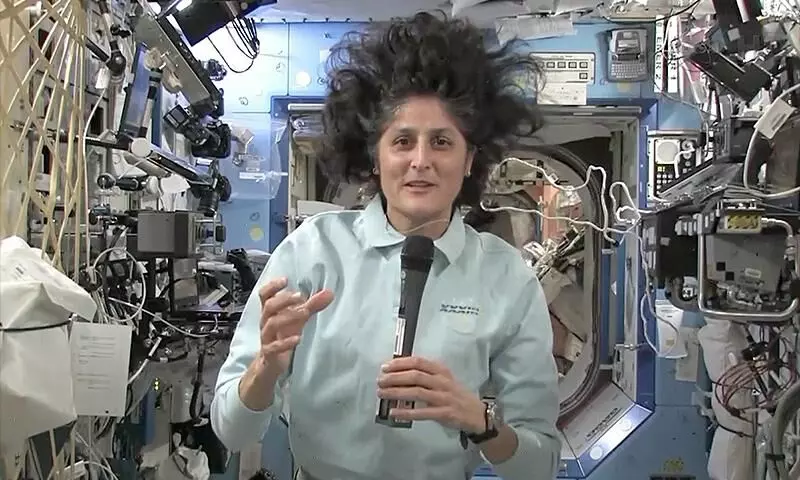
Sunita Williams, crew in trouble after 'Spacebug' detected at ISS
text_fieldsNew Delhi: A multi-drug resistant superbug has been detected on board the International Space Station (ISS) causing trouble to NASA's Indian-origin astronaut Sunita Williams and the eight other crew members staying in the orbiting station.
The bacteria named 'Enterobacter bugandensis', which infects respiratory system, became more potent in the closed environment of the ISS after it evolved, according to NDTV.
Often called a 'superbug', they are not extra-terrestrial life but bugs ended up at ISS after travelling as hidden co-passengers with the crew members.
Sunita Williams and Astronaut Barry Eugene "Butch" Wilmore, who reached the space station on June 6, 2024, will spend over a week in the low earth orbiting laboratory, testing the new spacecraft she helped design.
Alongside the concerns of space debris, and micrometeorites flying towards ISS, the space bug that has evolved over the last 24 years of continuous inhabitation is a big worry now for crew members.
NASA recently said that thirteen strains of drug resistant E. bugandensis have been isolated at ISS and the strains are being studied.
The strains isolated at ISS were found to be mutated under stress becoming genetically and functionally distinct compared to their Earth counterparts.
Persisting in the ISS in abundance, E. bugandensis co-existed various other microorganisms, thus in some cases helping those organisms to survive.
Dr Kasthuri Venkateswaran of NASA's Jet Propulsion Laboratory, Pasadena, California, USA, found a new multi-drug resistant bug called Kalamiella Piersonii in 2023.
Venkateswaran, alumnus of the Annamalai University studying Marine Microbiology, named the bug he discovered after his role model former President Dr APJ Abdul Kalam.
Researchers believe that astronauts working in altered immune conditions having limited access to medical facilities face heath challenges in space missions.
Dr Kasthuri Venkateswaran, Senior Research Scientist at JPL, NASA, was quoted as saying: "Our research uncovers how certain benign microorganisms help to adapt and survive opportunistic human pathogen, E. bugandensis, in the unfavourable conditions of the International Space Station.’
Venkateswaran added that ‘The knowledge gained from this study would shed light on microbial behaviour, adaptation, and evolution in extreme, isolated environments that allow in designing novel countermeasure strategies to eradicate opportunistic pathogens, thus protecting the health of astronauts."























